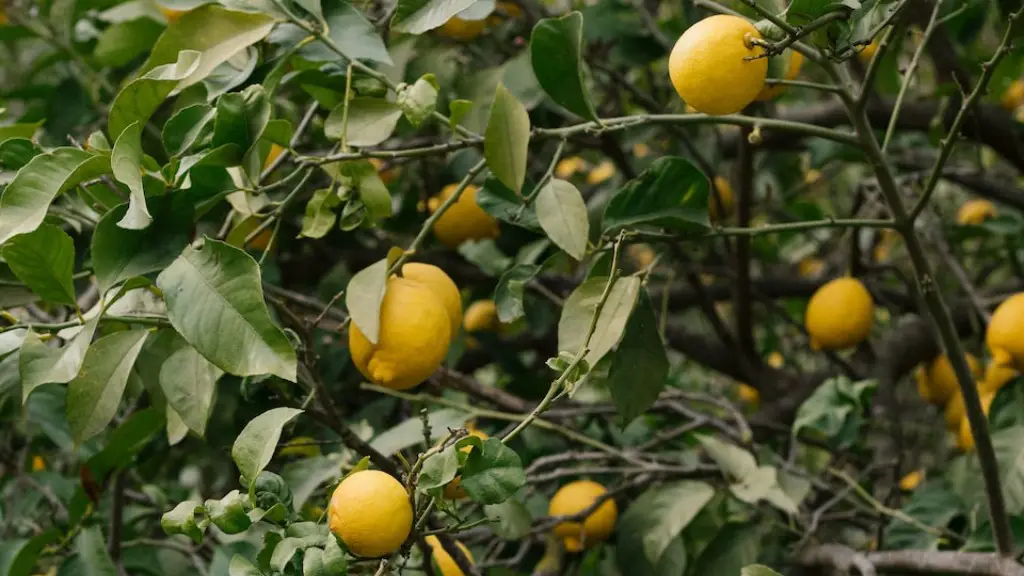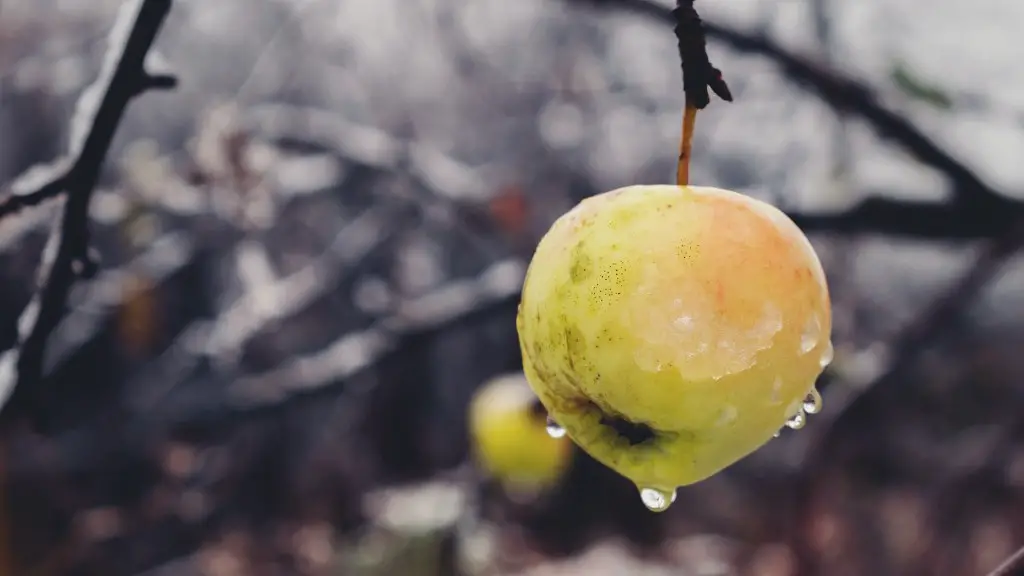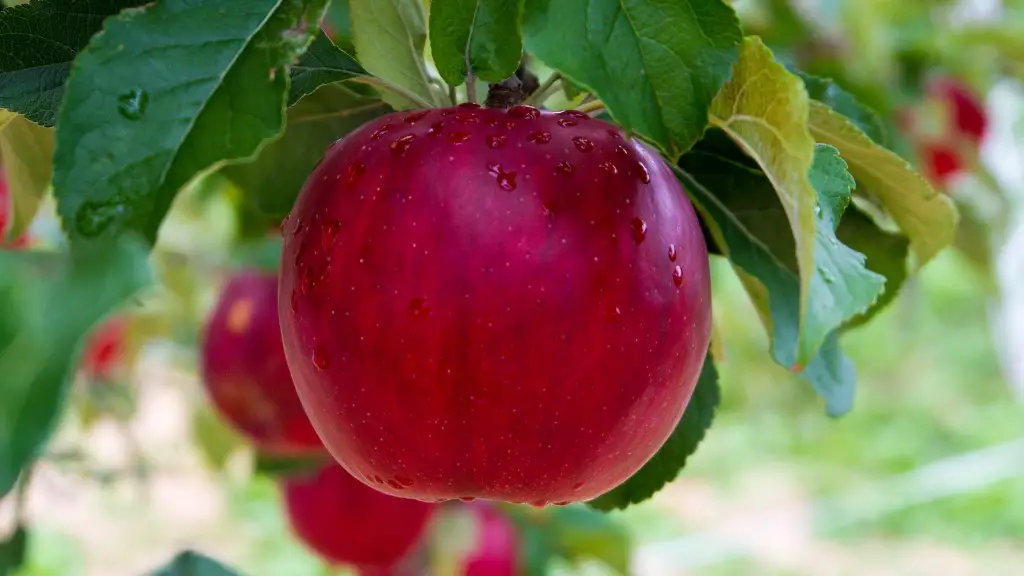A lemon tree is a vital citrus crop for many homeowners, but what causes a lemon tree to wilt and struggle to flourish? There are many potential reasons why your lemon tree may not be thriving. This article will examine the common causes for a struggling lemon tree and provide advice about what steps to take for a healthy and productive citrus crop.
First, evaluate the soil in which your lemon tree is planted. Squeezing a handful of soil should give an indication of “workability” and texture. Lemon trees need moist soil yet despise wet feet, so if the soil is too heavy and it feels wet, you may need to supplement your soil with compost or peat moss to ensure it is drainage-friendly. Additionally, make sure your lemon tree is getting adequate sunlight and nitrogen.
Second, check for a fungal or parasitic infestation. Poor nutrition, improper irrigation and a high humidity environment all can stunt the growth of your lemon tree. In the case of an infection, you may have to remove and destroy the affected material and treat the soil with a fungicide to help eradicate the parasite.
Third, inspect the root system of the lemon tree. The root system of a lemon tree should be surrounded by a deep, dense blanket of soil that retains moisture and is well aerated. If the roots are sunken or the soil is dry, this could be the reason why your lemon tree is struggling to thrive, and you should consider irrigating your soil or providing additional fertilizer to the roots.
Fourth, monitor your watering schedule. Lemon trees need 2-3 inches of water every 7-10 days; however, they can become quickly waterlogged and cause the roots to rot. Check the moistness at the root level and do not water if the soil is already saturated.
Lastly, pests can be a major problem for lemon trees. Check for pests such as spider mites, aphids, mealybugs and thrips, which can harm the leaves of the tree and stunt its growth. Insecticides can be used to eliminate these pests, and if left untreated, may lead to severe damage and death of the plant.
Temperature
Temperature can be another cause for a lemon tree not surviving. Lemon trees prefer warm climates with less than 90% humidity and prefer temperatures between 55-85°F (13-29°C). If your tree is exposed to low temperatures or fierce wind, this can stunt its growth and lead to an unhealthy crop.
Fertilize
Fertilizers are important for a lemon tree to thrive when the season allows it. Different fruit-bearing trees need different nutrients. Lemon trees need a balance of nitrogen and other essential elements to provide healthy growth; these elements should be supplied in the form of organic or chemical fertilizer. It is important to adhere to the recommendations on the specific fertilizer chosen and pay extra attention to the soil in which the fertilizer is to be applied!
Pruning
Pruning your lemon tree is a vital part of its health and vitality. Removing dead or diseased branches or stems will encourage the lemon tree to focus its energy on remaining healthy stems and branches. Pruning should be done during the citrus’ off season and old or dead branches should be cut away. Additionally, prune the tree to keep it in shape and go easy on it, as it is still young and developing.
Bees
Pollination is necessary for a lemon tree to produce healthy fruit, so make sure to invite your bee friends in. Bees play an essential role in pollinating trees. Provide them with a safe and natural habitat near the lemon tree, and you are sure to see some healthy fruit in the future!
Insecticides
If pests become an issue, choose insecticides with low toxicity but high efficacy. Choose insecticides with active ingredients that specifically target any pests uncovered while scouting. Insecticides can be applied as a foliar spray or a soil drench, depending on the type of insect and its life cycle. Apply insecticides according to the label directions to ensure safety and effectiveness.
Soil Tests
Because soil structure and composition play a major role in the health of a lemon tree, it is important to use a soil test to diagnose the particular needs of your tree. Soil tests can provide a wealth of information such as nutrient levels, pH, and salt content. This information can be used to adjust the fertilization regimen and find balance for your tree.


